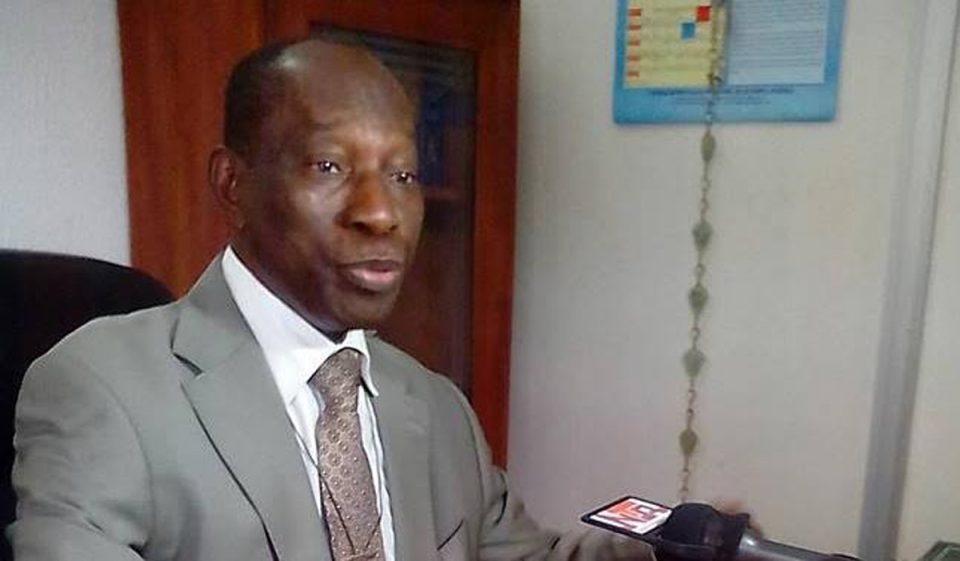Aviation stakeholders said that building aviation infrastructure had been identified as the way forward for the industry to survive post COVID-19.
They made the call at the just concluded second edition of the aviation webinar organised by AELEX partners in Lagos on Thursday.
TBI Africa reports that the discussion themed, “Flying into Turbulent Skies, Safely Navigating COVID-19 Headwinds – Survival Strategies for Nigerian Aviation”.
The conversation was centered on economic policy, state support and finance issues affecting airlines, airports and other stakeholders in the aviation industry.
Mr Bismarck Rewane, CEO, Financial Derivatives, said the aviation industry had been the worst hit since the COVID-19 outbreak.
Rewane, therefore, recommended that friendly policies should be put in place to kick-start the operations of the airlines.
He also indicated rather than the government pursuing a national carrier, the focus should be more on building aviation infrastructure as that would certainly draw investments.
Capt. Dapo Olumide, CEO, Ropeways Transport Ltd., opined that the way forward for the Nigerian aviation industry is infrastructural development.
Olumide, however, stated that the government was not in the best position to make that provision, hence the need for privatisation.
He suggested that in the long term, the only way an airport would survive is if it is either privatized or concessioned because of the profit-oriented nature of private businesses.
In his own contribution, Mr Chris Aligbe, the CEO of Belujane Konsult, noted that there was need for government intervention.
To do this, Aligbe recommended three measures.
According to him, there is a need for the government to put in stimulus for the entire industry to come back to what it was before COVID-19.
Aligbe, also proposed the need to stabilise the industry through the provision of long term soft facilities.
This facility, he said should be spread over a period of eight to ten years a low interest rate of three to four per cent and a two-year moratorium for all players in the industry.
He stated that to expand the industry, there’s a need to fast track concessioning as the inability to do so means the industry would never achieve a global standard.
Aligbe expressed his view on the national carrier, that the government had no business owning an airline, except in a public-private partnership in which case the government should own not more than five to 10 per cent of the airline.
The Chief Operating Officer of Ibom Air, Capt. George Uriesi attributed the success of the airline within a short period of time to efficient and rational utilization of resources.
Uriesi was not against government intervention in the aviation industry, but noted there’s a need to put in structure that would reposition the aviation industry.
He also advised that the government should fashion out a proper method of intervention in the aviation industry, adding that concessions should be run using a model that has worked for others around the world.
Uriesi indicated that the Ibom Air was increasing its fleet of aircraft in the midst COVID-19 pandemic, as result of contractual obligations that were concluded in the last quarter of 2019.
He further stated that the success of the Akwa Ibom State owned airline is attributable to use of the right business model and adherence to corporate governance best practices in running the airline.
For Mr Aminu Ismail, an Executive Director, Operations at the Asset Management Corporation of Nigeria (AMCON), his focus was on reviving Nigerian aviation.
Ismail noted that AMCON over the years had played a significant role in strengthening the aviation industry by providing intervention funds of over N50 billion since 2012.
Ismail, just like the other panelists, was also of the opinion that government need not own or run airlines, but should limit itself to policy development and developing infrastructure.
He expressed the need for the industry to re-calibrate and implement solutions to be able to come out stronger post COVID-19.
Ismail recommended that the government should support the aviation industry to ensure survival through tax relief, suspension of the payment of air passenger duty, access to forex, expansion of the aviation academy, and provision of training and development facilities.
He further advocated for collaborative alliance among airlines once flights resume, as against the usual competitiveness.
He also called on airlines to refocus their network, resize and restructure while placing priority on cash management.
Mr Olumide Bolumole, Head of Listing, Nigerian Stock Exchange(NSE), identified the high cost of operations, dominance of foreign operators, and uncompetitive regulatory framework.
Others, Bolumole noted included lack of cheap and long term funding, the inadequate infrastructure and safety as well as security issues as challenges faced by the Nigerian aviation industry.
Suggesting a way forward, he stated that there was a need for proper business regulations and also concessioning of airports and other related infrastructures.
He noted that the capital market offers opportunities for operations in the aviation space to raise capital which is required for smooth operations and growth.
TBI Africa reports that Webinar panel of discussion was moderated by Mr Fubara Anga, the Head of Transportation and Finance Practice Groups, ǼLEX.




